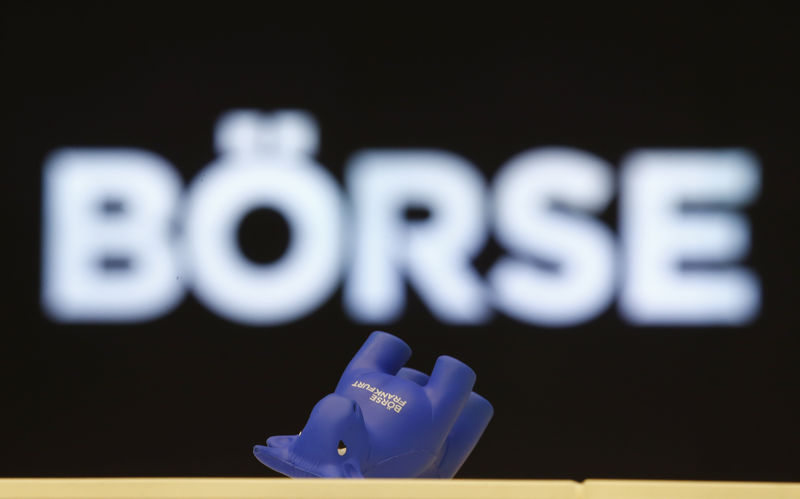This post was originally published on this site
https://i-invdn-com.akamaized.net/news/LYNXNPEC1R0G3_M.jpg © Reuters.
© Reuters.Investing.com – European stock markets traded strongly lower Monday, in a broad risk off move on the back of the sharp escalation of Chinese measures to curtail the spread of the deadly coronavirus.
At 04:15 ET (0915 GMT), the U.K.’s index was trading 142 points, or 1.9%, lower, France’s was 107 points, or 1.8%, lower, while the dropped 223 points, or 1.7%. The Italian dropped a relatively light 0.7%, outperforming after political developments over the weekend. The fell 30 points, 0.8%.
Markets in mainland China and Hong Kong are shut, but Japan’s Nikkei 225 closed 2% lower and Brent crude futures continued to tumble, hitting their lowest level since October as traders priced in the hit to Chinese demand.
U.S. crude futures traded 3.1% lower at $52.51 and the international benchmark Brent contract fell 3% to $58.10. Gold, by contrast, rallied, with futures for February delivery on New York’s COMEX were up 0.6% at $1,580.55.
“According to recent clinical information, the virus’s ability to spread seems to be getting somewhat stronger,” China’s National Health Commission Minister Ma Xiaowei said at a press briefing Sunday, adding that it is infectious in its incubation period, i.e. before symptoms show, making it harder to contain.
Nearly 2,000 people in China had been infected and 56 killed by the disease, Ma said Sunday, although Reuters reported later that the death toll has since increased to 80 and the number of confirmed cases to 2,744. Over the last week, both numbers have been rising at close to 50% a day.
“China has extended its New Year’s holiday until 2 February in efforts to curb the virus and airports around the world have stepped up screening of passengers from China,” said analyst Bjorn Tangaa Sillemann at Danske Bank, in a research note.
“However, with about 5 million residents leaving the city of Wuhan (where the virus originates) before the government shutdown of the city on Thursday, the job of containing the epidemic seems considerable,” he added.
There have also been gains in sovereign bonds, and in particular in Italy after nationalist leader Matteo Salvini suffered a setback in his attempt to return to power when his party’s candidate disappointed in a regional election Sunday.
The yield on the 10-yr benchmark Italian government bond dropped 17 basis points, while the spread between the 10-yr BTP and the 10-yr Bund fell 17 bps.
Turning back to the European equity markets, it’s the sectors which are strongly exposed to the Asian consumer which are hardest hit Monday.
In the luxury sector, Burberry dropped 5.3%, LVMH fell 3.7% and Gucci owner Kering (PA:) fell 4.1%, while in airlines, Lufthansa fell 4.5% and IAG (LON:), the parent company of British Airways, fell 5.2%.
The one bright spot is the Italian banking sector, helped by the results of regional elections in Emilia Romagna over the weekend, where Matteo Salvini’s Lega party failed to take control of the government from the ruling center-left Democratic Party and its allies.
The release of the German Ifo index also disappointed Monday, with the business climate indicator dropping back top 95.9 from 96.3 in December. An improvement had been expected after the gains in the ZEW and the PMI for the month.
Aside from worries over the impact of the virus in Asia, fresh economic data are thin on the ground in Europe Monday while the two-day meeting of the Federal Reserve that ends on Wednesday coupled with the Bank of England’s meeting on Thursday could keep a lid on activity.
Turning to corporate earnings, most eyes will be on the U.S. this week as tech giants Facebook (NASDAQ:) (NASDAQ:FB), Apple (NASDAQ:) (NASDAQ:AAPL), Amazon (NASDAQ:) (NASDAQ:AMZN) and Google parent Alphabet (NASDAQ:) (NASDAQ:GOOGL) all report their financial results for the final quarter of 2019.

